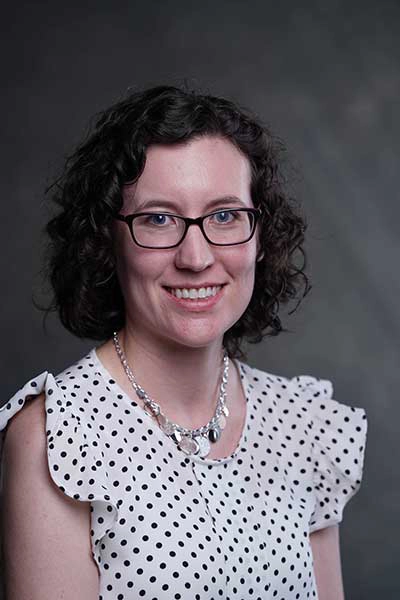Award-winning disease detective springboards from researching HIV viruses to drug overdose morbidity and mortality at CDC
Meet Amy Board
For Amy Board, Doctor of Public Health (DrPH) and current officer of the Centers for Disease Control’s (CDC) Epidemic Intelligence Service (EIS), preventive care and outbreak detection within the public domain has become the prevailing focus of her expanding career. Her passion for public health grew more concrete during her time as an Oak Ridge Insititute for Science and Education (ORISE) research fellow appointed to CDC’s National Center for HIV/AIDS, Viral Hepatitis, STD, and TB Prevention (NCHHSTP), Division of HIV/AIDS Prevention (DHAP).

Amy Board, former ORISE research participant and current officer of CDC’s Epidemic Intelligence Service, went from assisting national analyses that identify emerging HIV clusters to using surveillance data to track trends in drug overdose morbidity and mortality in the United States. (Credit: CDC)
The CDC Research Participation Programs are educational and training programs designed to provide students, recent graduates and university faculty opportunities to participate in project-specific CDC research, current public health research and developmental activities.
Under the guidance of her mentor, epidemiologist Anne Marie France, and others in DHAP, Board supported DHAP’s mission to detect and respond to growing clusters of HIV transmission in the United States. Amy’s activites involved implementing both cutting-edge molecular epidemiology methods as well as traditional epidemiologic methods to identify clusters of recent and rapid HIV transmission that could represent outbreaks. She also coordinated with state and local public health partners to support investigation and response in order to interrupt ongoing transmission.
After gaining public health experience at a local health department during her graduate program at the University of North Texas Health Science Center, Board became certain that obtaining federal public health experience at CDC was the next step in her blossoming career. “When I saw the ORISE fellowship posting for CDC research and analyses involving HIV cluster detection and response using molecular epidemiology, I was really excited about the opportunity,” Board said. “I felt the position would offer a great mix of building off of previous work I had done while challenging me to develop skills and knowledge in new areas.”
Board spent most of her time within DHAP developing evaluation measures, tools and guidance documents surrounding the use of HIV cluster detection and response techniques and she also conducted two analyses that helped increase the understanding of the dynamics of HIV transmission.
I learned a lot from this experience and developed a huge cadre of new skill sets. My position gave me a unique opportunity to simultaneously build my skills in program monitoring and evaluation as well as in epidemiology and data analysis. It was truly an incredible experience and I’m so grateful for it.
Taking ownership of her education in the program, Board was motivated to proactively outline her future goals and aspirations for her mentor early on to maximize new learning opportunities. Undertaking the counsel of her mentor and team lead, Board was inspired during her fellowship to focus her public health expertise in epidemiology, a goal she had not truly considered before. This ultimately led her to apply for the competitive Epidemic Intelligence Service (EIS) fellowship.
“My experience as an ORISE fellow solidified my desire to work for the CDC and also developed my interest in focusing my public health expertise in epidemiology, something I hadn’t really considered before,” she recounted. “This prompted me to apply for the renowned EIS fellowship, and I am excited to be a second-year EIS officer, otherwise known as a CDC disease detective.” EIS is a long-standing, globally-recognized fellowship program, renowned for its investigative and emergency response efforts.
With her influentially educational experience assigned to DHAP behind her, Board is now appointed within the National Center for Injury Prevention and Control, Division of Overdose Prevention, Epidemiology and Surveillance Branch at CDC, where she works with surveillance data and other data sources to analyze trends in drug overdose morbidity and mortality in the United States. She has served as a member of response teams that have been honored for their work in responding to public health emergencies, including the National Center for Injury Prevention and Control’s 2019 Excellence in Frontline Public Health Award and the DHAP 2019 Excellence in Emergency Response Award. These contributions to public health response research have also been published in several scientific publications including the American Journal of Public Health and the Morbidity and Mortality Weekly Report, published through CDC.
“Thanks to the amazing team and mentor, I truly believe my ORISE fellowship experience was instrumental in launching my career,” Board explained. “I’m so grateful for the experience I had and the ways my mentor and teammates encouraged and supported me in taking this next step to becoming a CDC disease detective.”
The program is managed by the Oak Ridge Institute for Science and Education (ORISE) under an agreement between the Centers for Disease Control and Prevention (CDC) and the U.S. Department of Energy (DOE). ORISE focuses on scientific initiatives including educating the next generation of scientists and is managed for DOE by ORAU.

